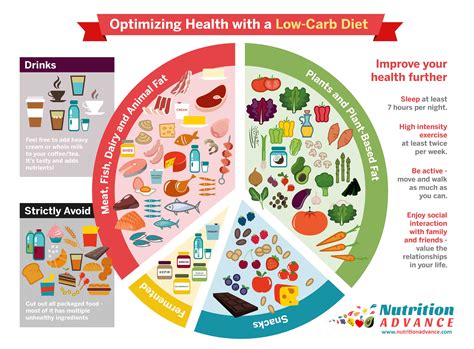Carb timing for sustained energy, mental focus & peak performance?

Unlocking Your Potential with Strategic Carb Timing
Carbohydrates are the body’s primary source of energy, fueling everything from daily activities to intense workouts and intricate brain functions. However, it’s not just about how many carbs you eat, but when you consume them that can profoundly impact your energy levels, mental clarity, and physical performance. Strategic carbohydrate timing, often misunderstood, is a powerful nutritional tool that, when wielded correctly, can unlock sustained vitality and peak capabilities.

The Science of Fuel: How Your Body Uses Carbs
When you consume carbohydrates, they are broken down into glucose, which circulates in your bloodstream and is used immediately for energy or stored as glycogen in your liver and muscles. Muscle glycogen is critical for physical activity, while liver glycogen helps maintain stable blood sugar levels, especially important for brain function. The timing of your carb intake influences insulin response, which dictates how quickly glucose enters cells and how efficiently those stores are refilled or utilized.
Understanding this metabolic dance is key. Eating the right type of carbs at the right time can prevent blood sugar spikes and crashes, ensuring a steady supply of fuel for both your muscles and your mind. Conversely, poor timing can lead to lethargy, brain fog, and compromised physical output.
Carbs for Sustained Energy Throughout Your Day
For consistent energy without the dreaded mid-afternoon slump, focus on complex carbohydrates. Foods like whole grains, vegetables, and legumes provide a slow and steady release of glucose into the bloodstream, preventing sharp insulin spikes and subsequent crashes. Pairing these with protein and healthy fats further moderates absorption, ensuring prolonged energy. Prioritizing complex carbs at meals, especially breakfast and lunch, sets a stable foundation for your energy demands.

Enhancing Mental Focus and Cognitive Function
Your brain is a glucose-guzzling machine, consuming approximately 20% of your body’s total energy intake. Erratic blood sugar levels, often a result of poorly timed simple carb consumption, can manifest as brain fog, difficulty concentrating, irritability, and decreased cognitive performance. To maintain sharp mental focus, aim for a consistent supply of glucose.
This means avoiding sugary snacks that cause rapid spikes and crashes. Instead, opt for whole-food carbohydrates that provide a gradual and continuous energy source. A breakfast rich in fiber-rich carbohydrates and protein, for example, can significantly improve morning concentration and productivity compared to a sugar-laden pastry.

Optimizing Carbs for Peak Physical Performance & Recovery
For athletes and active individuals, carb timing moves from important to critical. Pre-workout carbohydrates provide the necessary fuel to perform at your best, with complex carbs ideal 2-3 hours before exercise, and easily digestible simple carbs (like a banana) closer to the activity for quick energy. During prolonged exercise (over 60-90 minutes), consuming fast-acting carbs can prevent glycogen depletion and maintain performance.
The post-workout window is equally vital. After intense exercise, your muscle glycogen stores are depleted. Consuming carbohydrates, especially simple or high-glycemic ones, within 30-60 minutes post-exercise, combined with protein, is crucial for rapid glycogen replenishment and muscle repair. This strategy accelerates recovery, reduces muscle soreness, and prepares your body for the next challenge.

Practical Strategies for Effective Carb Timing
- Morning: Complex carbs (oatmeal, whole-grain toast) with protein for sustained energy and mental clarity.
- Pre-Workout (2-3 hours): Complex carbs (brown rice, sweet potato) for sustained fuel.
- Pre-Workout (30-60 mins): Simple carbs (fruit, energy bar) for quick energy boost if needed.
- During Workout (long duration): Sports drinks or gels for immediate energy to prevent bonking.
- Post-Workout (0-60 mins): Simple carbs (fruit, white rice) and protein for rapid recovery and glycogen replenishment.
- Evening: Moderate complex carbs, especially if active later in the day, to aid recovery and prepare for the next day, avoiding heavy, simple carbs that could interfere with sleep.
Remember, individual needs vary based on activity level, metabolism, and specific goals. Experiment with different timings and types of carbohydrates to discover what works best for your body and lifestyle. Pay attention to how you feel – your energy levels, mental alertness, and athletic performance – and adjust accordingly.

Conclusion: The Power of Intentional Carbohydrate Intake
Carbohydrate timing is more than just a fitness fad; it’s a scientifically backed approach to nutrition that can significantly impact your daily life. By strategically planning your carb intake around your activities and energy demands, you can achieve more stable energy levels, sharper mental focus, and consistently perform at your physical peak. Embrace intentional carb timing and unlock your full potential.









